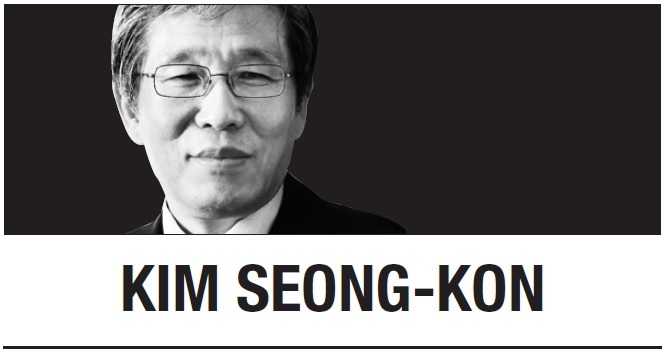
Recently, a BBC reporter, Laura Bicker, wrote via Twitter, “Prosecution in South Korea are asking for an 18-month sentence for a man who stole 18 eggs because he was hungry.”
This was the same amount of prison time, the reporter observed, that the court sentenced for the operator of Welcome to Video, the world’s largest-known darknet child pornography site. She also reported that the Seoul High Court said no to the appeal from the US for his extradition to face charges in the US.
According to its dictionary definition, sarcasm is “to say the opposite of what is true to make someone look or feel foolish.” Some people mistake sarcasm as a compliment and others discern the underlining cynicism in it. With that in mind, I have decided to write the following rather sarcastically.
Reading Bicker’s tweet, I was so proud of our prosecutors and judges who assured us that stealing eggs was the same kind of felony as operating the world’s largest dark web child porn site, whose victims include a 6-month-old baby. Our prosecutors and judges must have been under the impression that they had lived in the late 18th century, when Jean Valjean had to spend five years in prison for stealing a loaf of bread.
It seems that neither our prosecutors nor judges are aware that operating an international child porn website and laundering money constitute serious offenses in advanced countries. An American friend of mine told me that in the US, operating a baby or teenage porn website is a serious felony that may result in some 100 years or so of imprisonment.
Indeed, in America the punishment for misdemeanors, larcenies or felonies is severe. For example, if you lie to a federal agent, you may have to spend as long as five years in prison. If you drive away, speeding, when a police car signals you to pull over, the maximum sentence is 15 years in some states. Forging a certificate for arms smuggling will send you to prison for up to 20 years. Of course, it varies depending on the state and the actual sentence may be much less than the maximum penalty specified. Nevertheless, the punishment is scary enough to make people obey the law.
Compared to America, Korea is a paradise for lawbreakers. We lie to law enforcement officers freely, run away at will when pursued by a police patrol car and forge documents without worry. Even if you kill a child while you are speeding in a school zone or kill a family in another car while driving under the influence, you do not need to worry much in Korea. Your generous judge will protect you and sentence you to a mere year and a half.
In America, however, when you run over a child in a school zone or kill a person while driving under the influence of alcohol or drugs, you will probably have to spend the rest of your life in prison. In that sense, Korea is a haven for drunkards and sexual predators, thanks to their warm-hearted prosecutors and judges who sympathize with them, rather than punish them severely. In advanced counties, the law does not tolerate drunk driving or sex crimes. Perhaps due to the long tradition of our “gisaeng culture,” which involves drinking and sexual dissipation, our prosecutors and judges seem to be excessively magnanimous when it comes to crimes related to drinking or sexual offences.
Lady Justice in ancient Rome is blindfolded and holding a scale of balance and a sword. Themis, the Greek goddess of justice, is similar. The image of the goddess of justice implies that both prosecutors and judges should be fair and impartial and never be discriminative or biased. This especially applies to judges who have to judge, adjudicate and sentence in court.
I am very proud of our pristine judges because they faithfully follow the spirit of the goddess of justice and exhibit utmost fairness. Indeed, neither political powers nor public opinions can sway their sentence. As Earl Warren, former chief justice of the United States, said, “It is the spirit and not the form of law that keeps justice alive.” Indeed, a judge should live on fairness, integrity and honor.
I am proud of our judges because they advocate the independence of the judiciary and refuse to connive when it comes to politicians’ crimes even if they are politically powerful or ideologically appealing. I am also proud of our judges because they are rational enough not to sentence outrageously long prison terms for political prisoners, while sentencing only 18 months to among the world’s largest child porn website operators who has sexually exploited babies and children in order to make money.
Wayne Dyer once said, “Judging a person does not define who they are. It defines who you are.” Our prosecutors and judges should always keep this phrase in mind. Then, we will be genuinely proud of them.
Kim Seong-kon
Kim Seong-kon is a professor emeritus of English at Seoul National University and a visiting scholar at Dartmouth College. -- Ed.






![[Herald Interview] 'Trump will use tariffs as first line of defense for American manufacturing'](http://res.heraldm.com/phpwas/restmb_idxmake.php?idx=644&simg=/content/image/2024/11/26/20241126050017_0.jpg)
![[Health and care] Getting cancer young: Why cancer isn’t just an older person’s battle](http://res.heraldm.com/phpwas/restmb_idxmake.php?idx=644&simg=/content/image/2024/11/26/20241126050043_0.jpg)
